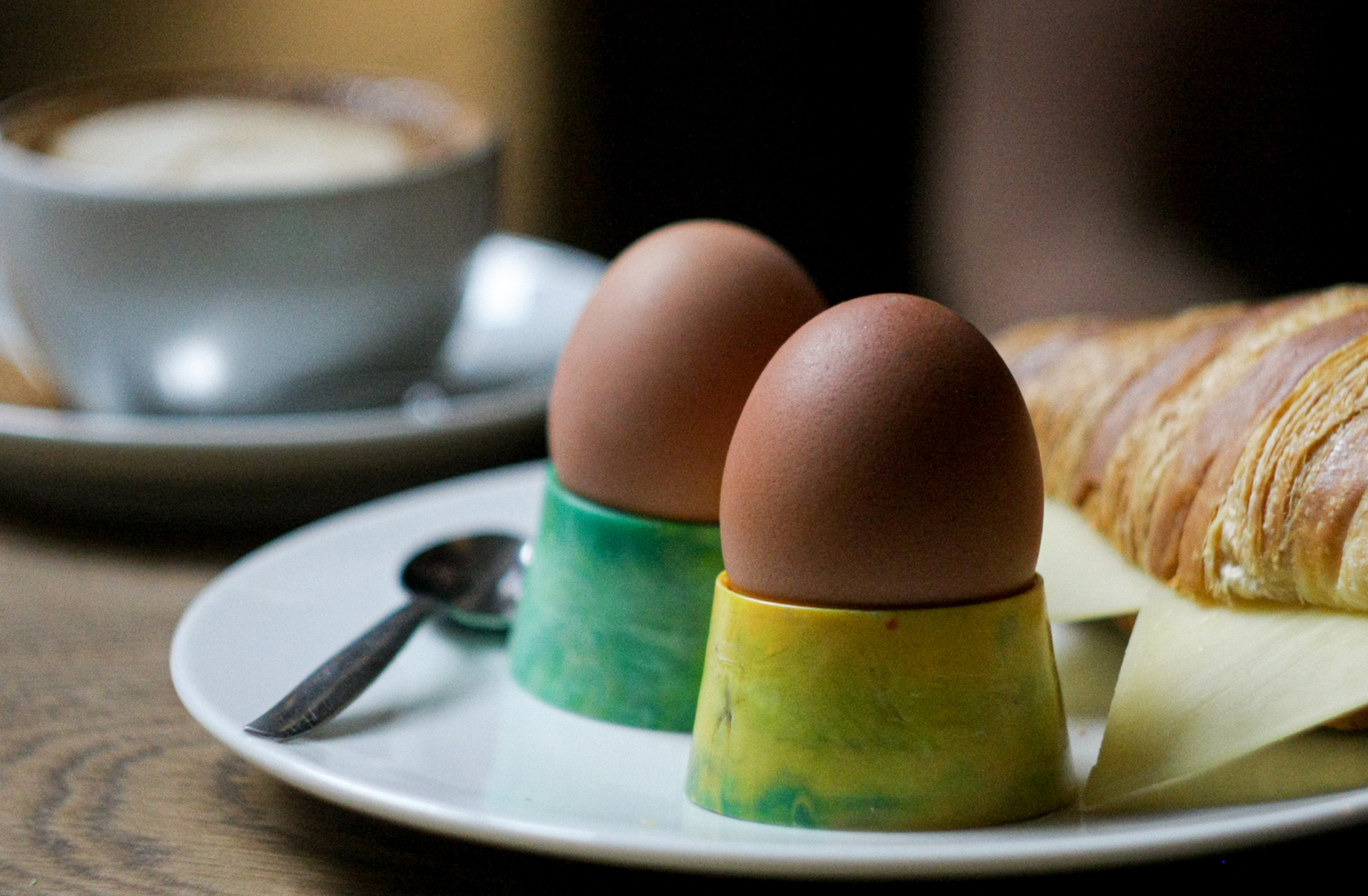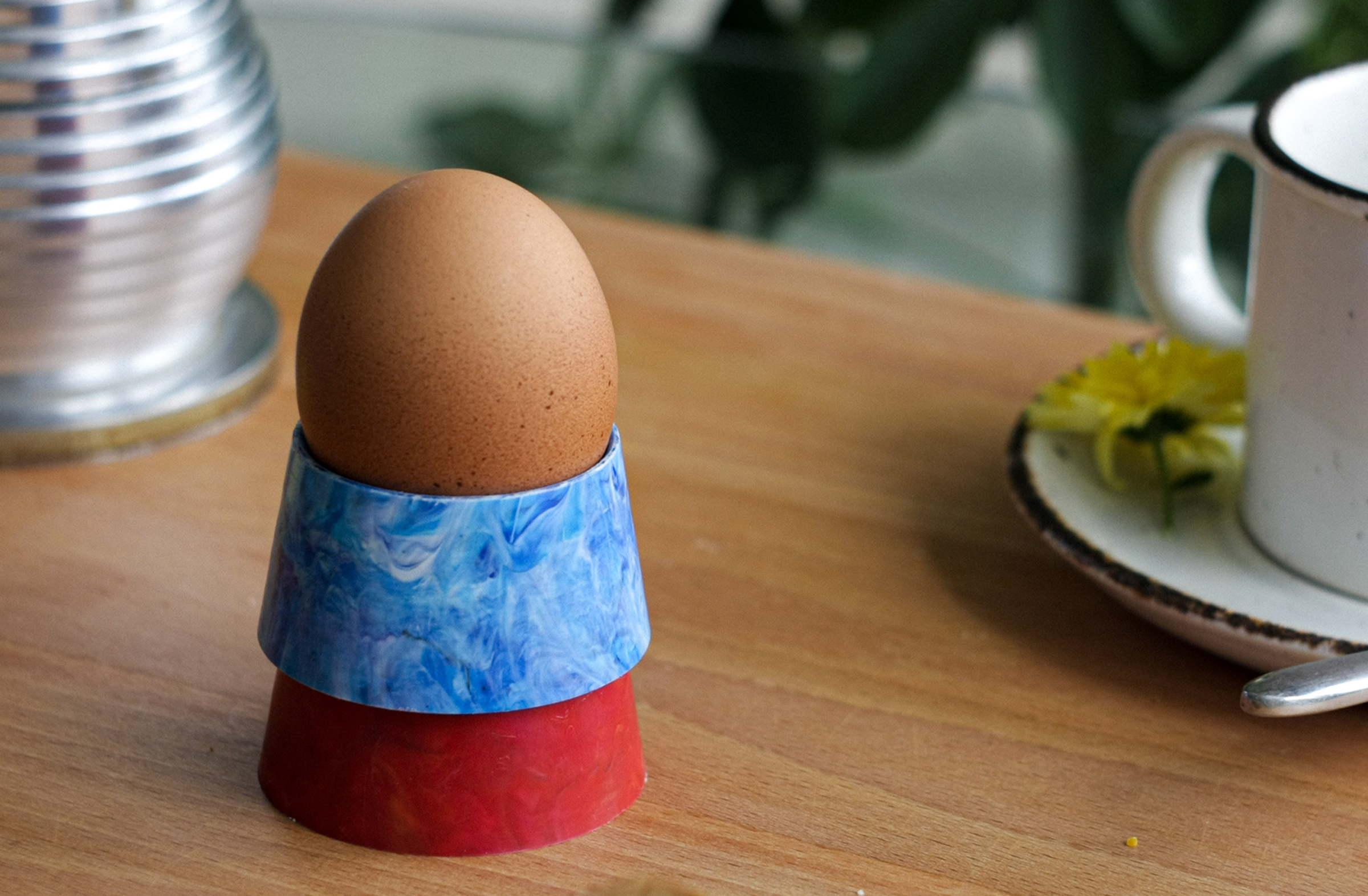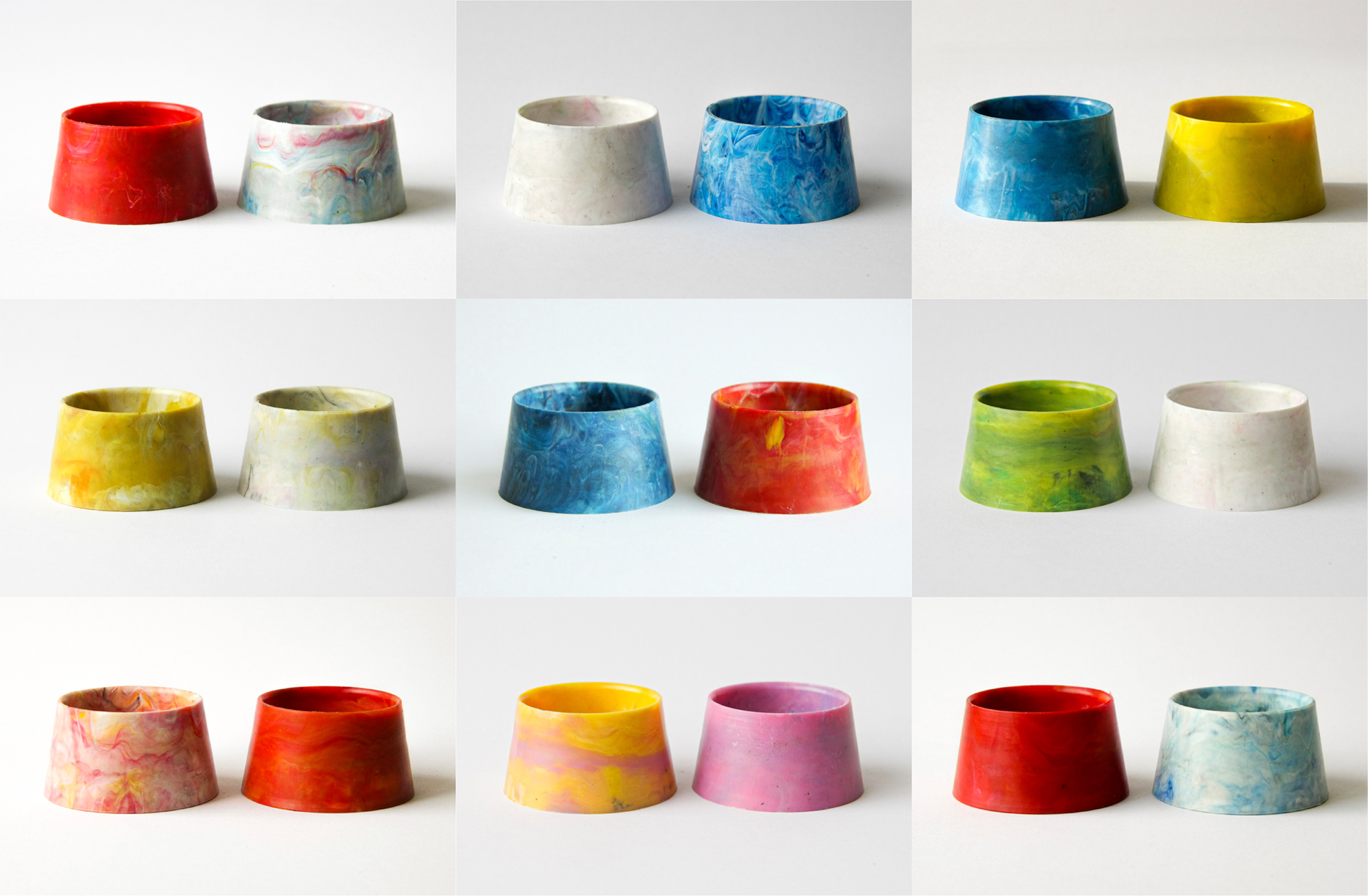The Good Egg

Useful information
- Team members
- Nicola Charlesworth Kim Stanek
- Country
- Netherlands
- Keywords
- Plastic recycled up-cycled egg cups homewares design industrial design local production open source
Short Description
The Good Egg is a pair of stackable egg cups that celebrates lo-fi plastic recycling.
Detailed Description
The Good Egg is Object Density’s first project exploring the limitless design and social potential of upcycling plastic waste into products that showcase the value of recycled plastic and establishes a community-oriented production system.
Object Density wants to celebrate the act of upcycling plastic waste into accessible, desirable objects that re-connect and re-engage the wider public with the process of recycling. The vibrant, flecked surface texture highlights the plastic’s previous life, embracing the aesthetic character synonymous with the production process.
Designed as a tangible communicator, The Good Egg shows that our collective effort to recycle and reuse our plastic waste has a real effect. Cast using post-consumer and industrial waste polypropylene each pair weighs approximately 40g, about the same as a small egg. With each set, the user can recognise that they have removed about an egg’s worth of plastic waste from our environment!
Project Details
- Does your design take social and cultural challenges and human wellbeing into consideration?
The issue of plastic waste is one of the greatest challenges that face the contemporary global community. We all know about plastic-filled fish and island-sized oceanic garbage patches, but what these heart-crushing problems also mean is that we have an abundant material opportunity - recyclable, durable, and versatile material in every nook and cranny. The Good Egg hopes to show how this material can and should be valued, and to inspire others to draw from the pool of open source knowledge and develop innovative uses for this ‘waste’ product.
We believe that to best address this challenge, we also need to bring social awareness and humanity to production processes. To produce The Good Egg, we use a small-scale, lo-fi manufacturing process, based on open-source knowledge and techniques. By simplifying and localising the production of recycled plastic products, we bring awareness to the value of plastic waste and provide an opportunity for people to see and engage with systems that are often not seen. With this, we can empower individuals and communities to make a change in the face of a seemingly impossible challenge.
We believe in business as a force for good and donate 1% of profits from the Good Egg to Take 3 For the Sea, a charity dedicated to ocean clean-up and public education.
- Does your design support sustainable production, embodying circular or regenerative design practices?
Produced in small numbers by our studio team in 's-Hertogenbosch, the Netherlands, using 100% post-consumer and industrial waste, The Good Egg fully embodies the potential for circular production of plastic object design. By elevating waste material to create desirable, functional objects we bring new life to waste material and challenge the perceived value status. For The Good Egg, we use polypropylene (PP), indicated by the recycling symbol number 5. Any product with this symbol stamped in can be shredded and re-made into an eggcup, or thousands of similar products. Similarly, any egg cups that do not pass our quality control during manufacture can be returned to the shredder and once again become usable material.
By keeping manufacturing in-house and small-scale, we are able to keep our production system transparent and sustainable. The value of these eggcups is not solely in the finished product, but also in the chain of knowledge and production that they embody and enrich. By electing for this production chain, we support local, decentralized plastic collection and recycling programs, manufacturing workshops, independent tool-makers, and retailers - and in turn, they support us.
- Does your design use principles of distribution and open source?
The Good Egg has been designed and produced leveraging the knowledge and techniques developed by the Precious Plastic team. Precious Plastic is a grassroots plastic recycling community, that enables designers, makers, and creative thinkers to develop and produce products made from recycled consumer and industrial waste plastic. We aim to continue to design products that enrich this body of knowledge so that we can contribute to the growth and development of this community.
The injection moulding tool has been developed to be produced using CNC technology, derived from a CAD model of the design. By combining these technologies with open-source knowledge we prevent the need for mass manufacture and global distribution, instead, aiming to establish decentralised, localised production and distribution networks that engage communities and minimise the environmental footprint of the end product.
- Does your design promote awareness of responsible design and consumption?
We believe that conscious design leads to conscious consumption, and have gone to great lengths to ensure The Good Egg is sustainable from the ground up - from manufacturing practices to careful selection of packaging and branding materials.
By utilising lo-fi, open-sourced production methods The Good Egg shows the value and potential of recycled plastic on a small scale, allowing a new understanding of processes that are otherwise not seen by the public.
While we are still in the early stages of this project, we believe that this bottom-up approach to our waste problem has great potential in changing practices on a global scale. With new awareness of plastic recycling and production processes occurring locally, people will have a greater drive to ensure their plastic is properly recycled. With a transparent and engaging production process, we build an understanding of how products are made, where materials come from, what certain price points may denote, and ultimately influence buying patterns in other areas of life. With more conscious and informed purchases, companies utilising sustainable practices will be supported, changing production systems on a larger scale.
Images


